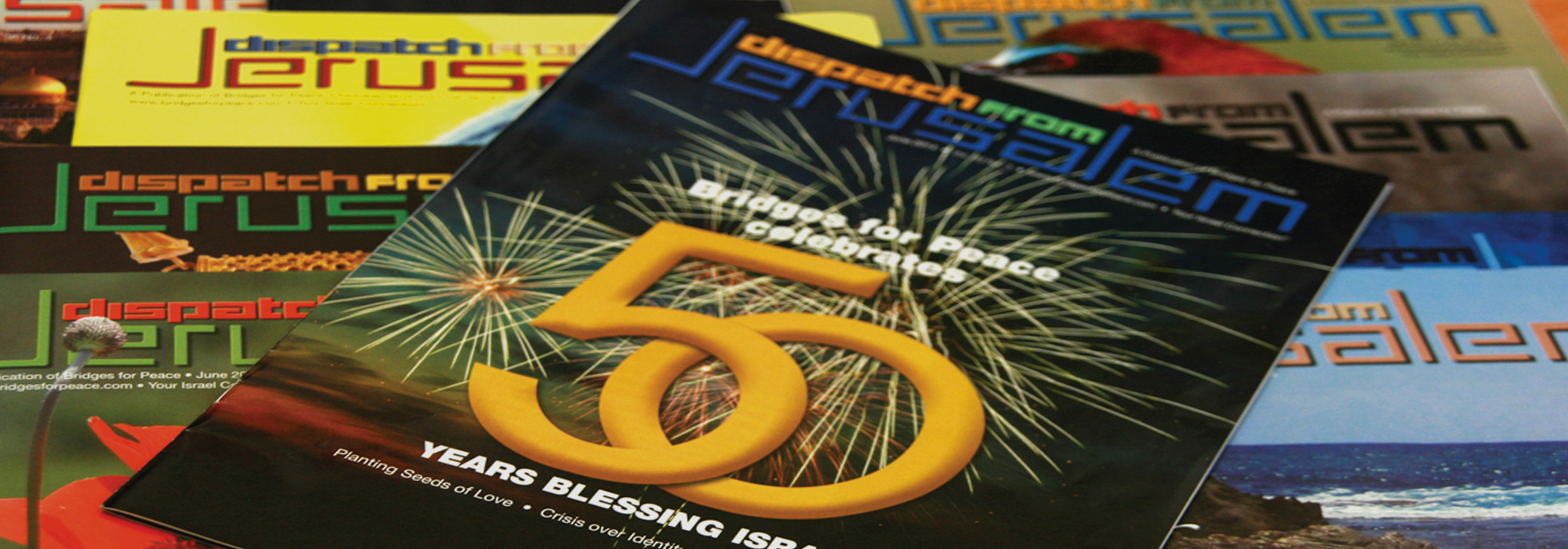
by: Ilse Strauss, Assistant Editor
 Jewish people often jest that the “why” and “what” of all their festivals can be summarized in three pithy sentences: “They tried to kill us. We survived. Let’s eat.” The tongue-in-cheek statement holds more than a kernel of truth. Nearly every Jewish feast either tells the tale of miraculous salvation from a seemingly insurmountable foe or marks a watershed event that changed the course of Jewish—and world—history. Passover commemorates freedom from mighty Pharaoh’s yoke of slavery, Purim (Feast of Esther) celebrates deliverance from the evil schemes of Haman and on Hanukkah (Feast of Dedication) Israel remembers the victory of a tiny band of Jewish warriors over the might of the Seleucid Empire. Jewish people hold Yom Kippur (Day of Atonement) as the awesome day God set aside for forgiveness and on Shavuot (Feast of Weeks) Israel stood around Mount Sinai to receive the Torah (Gen.–Deut).
Jewish people often jest that the “why” and “what” of all their festivals can be summarized in three pithy sentences: “They tried to kill us. We survived. Let’s eat.” The tongue-in-cheek statement holds more than a kernel of truth. Nearly every Jewish feast either tells the tale of miraculous salvation from a seemingly insurmountable foe or marks a watershed event that changed the course of Jewish—and world—history. Passover commemorates freedom from mighty Pharaoh’s yoke of slavery, Purim (Feast of Esther) celebrates deliverance from the evil schemes of Haman and on Hanukkah (Feast of Dedication) Israel remembers the victory of a tiny band of Jewish warriors over the might of the Seleucid Empire. Jewish people hold Yom Kippur (Day of Atonement) as the awesome day God set aside for forgiveness and on Shavuot (Feast of Weeks) Israel stood around Mount Sinai to receive the Torah (Gen.–Deut).
Yet to every rule there’s the exception—and the Jewish festivals are no different. Among the annual lineup of dates marking phenomenal feats of deliverance or mind-blowing interventions, Sukkot (Feast of Tabernacles) is the only feast that doesn’t commemorate a specific historic event in Jewish history. What then merits its spot as a feast of significance in the yearly cycle? Moreover, why does Sukkot feature as one of the most anticipated, merriest and joyful times in Israel?
God places a weighty emphasis on the seven-day festival by including it as the last of the three pilgrimage feasts alongside Passover and Shavuot. In biblical times, each Jewish male was required to travel to Jerusalem for these three holidays to appear in the Temple before God’s presence (Exod. 23:14–17, Deut. 16:16). Aside from the official names, Jewish tradition also ascribes a short description to the three pilgrimage festivals. Passover is known as “The Season of Our Freedom,” Shavuot as “The Season of the Giving of our Torah” and Sukkot as “The Season of Our Rejoicing.” While the first two descriptors are rather obvious, the connection between Sukkot and joy can be a bit more puzzling.
 The name Sukkot is plural for sukkah, the Hebrew word for hut or booth. The feast commemorates the 40 years a fledgling nation of former slaves wandered the desert en route to the Promised Land, living in temporary huts or sukkot —with nothing but the faithfulness of God to provide for their daily necessities like safety, shelter and sustenance amid a barren wilderness.
The name Sukkot is plural for sukkah, the Hebrew word for hut or booth. The feast commemorates the 40 years a fledgling nation of former slaves wandered the desert en route to the Promised Land, living in temporary huts or sukkot —with nothing but the faithfulness of God to provide for their daily necessities like safety, shelter and sustenance amid a barren wilderness.
Today, more than three millennia later, the descendents of those who spent four decades in the desert sustained by God’s care celebrate Sukkot according to His command, “You shall dwell in booths for seven days…that your generations may know that I made the children of Israel dwell in booths when I brought them out of the land of Egypt…” (Lev. 23:42–43).
The days leading up to the holiday pass in a flurry of activity as Israelis become makeshift carpenters to construct temporary shelters outside their homes, in backyards and on balconies, sidewalks and every other conceivable open space. The temporary dwellings—often made from a frame of wood or metal, covered with sheets, rugs or blankets as “walls” and branches or leaves as the roof through which those inside can see the sky—becomes “home.” For the week of Sukkot, Israelis spend their free time in the sukkah, enjoying their meals, visiting with loved ones and even sleeping under the stars—much like their ancestors did in the wilderness.
One could argue that forsaking the comfort, convenience and climate control of a house for seven days of roughing it in a flimsy hut hardly constitutes a reason for merriment. Why then is the holiday called “The Season of Our Rejoicing”?
God Himself draws the correlation between Sukkot and joy when He instructs Israel to spend the feast in delight and jubilation before Him (Lev. 23:40). Joy is thus a decision based on God’s directive rather than a fleeting emotion that may or may not be present.
Moreover, on Sukkot Israel remembers and affirms that true happiness is not found in the earthly trappings that money can buy, neither is stability derived from a hefty bank balance, a fancy title or a lofty position. On Sukkot Israel celebrates the fact that God is the one true source of joy, love, security, provision and protection. The God who met every need of their ancestors as they wandered exposed in the wilderness for 40 years with no way to fend for themselves is the same God who continues to care for Israel in the Promised Land. That is certainly reason for rejoicing.
The significance of the sukkah or temporary hut also goes beyond a physical reminder of God’s care and commitment to fulfill our everyday needs. Jewish tradition holds that dwelling in the sukkah is like being enfolded in God’s embrace. According to this belief, God commanded Israel to erect the temporary dwellings in memory of the “clouds of glory.” During the Israelites’ wandering in the wilderness, God provided a pillar of cloud by day and a pillar of fire by night. The pillar of cloud guided the Israelites as they journeyed by day, but when they camped at night, the cloud took on a different form and became a tabernacle overhead. This was reportedly the same cloud of glory that hovered above Mount Sinai—the clouds of the glory of God. While the Israelites dwelled in the desert, Jewish belief holds that God enfolded them in a tabernacle of the cloud of His glory, the cloud of His presence. Moreover, each year over Sukkot, He invites their posterity to do the same. The implication? As Israel dwells in temporary huts in memory of the cloud of His glory in the desert, they, like their forefathers, dwell in His embrace.
Photo Credit: Michio Nagata & Hannah Taylor/bridgesforpeace.com
All logos and trademarks in this site are property of their respective owner. All other materials are property of Bridges for Peace. Copyright © 2024.
Website Site Design by J-Town Internet Services Ltd. - Based in Jerusalem and Serving the World.